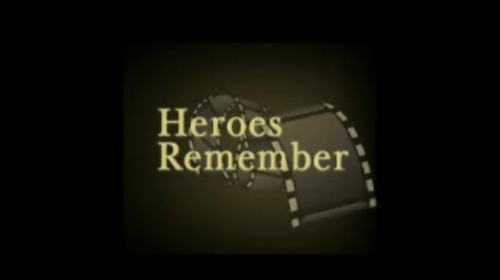They’ll eat up your food
First World War Audio Archive
They’ll eat up your food
Transcript
Hill 62 Memorial Belgium.
was mopping up any enemy troops that might be down there. And on this basement floor there was a man, a German soldier,Courtrai Memorial Belgium.
lying on his back. It was quite obvious he was just on his lastLe Quesnel Memorial Belgium.
gasp, you know. He was like over there as we walked past him, while he was doing like this. He wanted a drink. And I saw...Gueudecourt Memorial France.
and I had water in my bottle. I went over and give him a drink.Dury Memorial France.
Well, the boys thought it was a heck of a thing to do. I did it without thinking you know, just impulsively... I don’t supposeMonchy Memorial France.
he lived anytime after that, I don’t know. But, oh, I don’t know,Passchendaele Memorial Belgium.
they seemed to have a doctrine there that... I heard one quite a bit, this was before the Armistice; there was only one goodMasnières memorial France.
Hun, and that’s a dead Hun. I remember one time, the orderly officer put it up to us when... in the mess room, at meal time you see. He’d always come around, this officer, and say,Bourion Wood Memorial France.
“Any complaints?” Well, nobody would make any complaints.Courcelette Memorial France.
If you did, why, he’d make it tough for you. But this time,Beaumont-Hamel Memorial France.
I remember the orderly officer come around. Instead of saying, “Any complaints?” he said, “Well, you fellows are complaining that you don’t get enough to eat. And yet you keep on takingSt. Julien Memorial Belgium.
prisoners and they’ll eat up your food. What’s the matter withCanadian National Vimy Memorial France.
you? Don’t you realize there is only one good Hun and that’s a dead Hun?” So, you see, they put it up to us.Description
Mr. MacKay describes two situations which offer opposing views about how to deal with German prisoners.
Donald Finlay MacKay
Donald MacKay was born in Indian Head, Saskatchewan, on April 2, 1897. His father was a pre-Riel homesteader, but Mr. MacKay chose to teach, at age 17, in a one room school. In March 1917, he enlisted in the 249th Battalion at Regina, Saskatchewan. He was sent to Valcartier, Quebec, where he qualified for air force service, but opted to stay in the army. Mr. MacKay was ready to ship out to England, but an epidemic on board saw him quarantined at Camp Aldershot, Nova Scotia. There he took officer training, qualifying as Sergeant. Once assigned to the 46th Battalion, Mr. MacKay served as a Signaller, primarily at Valenciennes. There is no record of his post-service experience. At the time of his interview, Mr. MacKay lived in Wolsely, Saskatchewan.
Meta Data
- Medium:
- Video
- Owner:
- Veterans Affairs Canada
- Duration:
- 2:15
- Person Interviewed:
- Donald Finlay MacKay
- War, Conflict or Mission:
- First World War
- Location/Theatre:
- Europe
- Battle/Campaign:
- Valenciennes
- Branch:
- Army
- Units/Ship:
- 249th Battalion
- Rank:
- Private
- Occupation:
- Gunner
Attestation
Related Videos
- Date modified:



